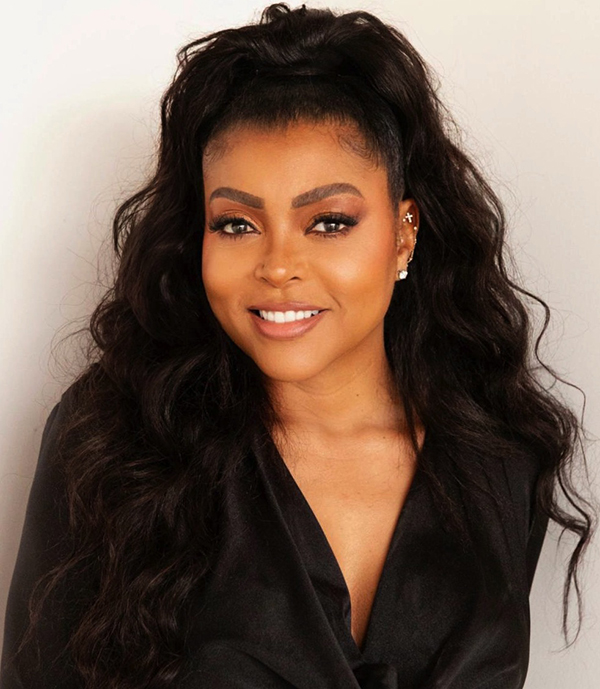By Darlene Donloe
Contributing Writer
CULVER CITY — When Stephanie Moran Reed and her husband, Muammar Reed, had their daughter, Mireya Jamila, they wanted to build a library for her full of books by Black and brown authors and illustrators with Black and brown images on the cover.
“We wanted our daughter to read books that had images of people who look like her,” said Muammar Reed, who is Black.
“There were so few books out there,” said Stephanie Reed, who is Mexican-American.
Frustrated with the choices that were available, the Reeds launched Culver City-based MiJa Books in October 2020, an online resource of children’s books with a mission to showcase multicultural and diverse books that feature characters of color.
The Reeds have created a platform for Black and Latina-owned independent bookstores and self-publishers, which will allow them to attract a more widespread audience through MiJa Books.
Stephanie Reed explained that the meaning of “MiJa” is two-fold: it is an amalgamation of the first two letters of their daughter’s first and middle name. It also spells out the colloquial word for “daughter,” mija, in Spanish.
“We launched partly out of necessity and as a passion project,” said Stephanie Reed, who has a bachelor of science degree in cognitive science from UCLA, with a minor in gerontology and specialization in computing. “During the pandemic, my primary job working with the elderly almost came to a halt. It wasn’t financially sustainable for me. I was raising a daughter and trying to build a home library.”
Stephanie said she tried to find diverse books for Mireya, including at big retailers, but was unsuccessful.
“I had no luck walking into a Barnes and Noble to find the kind of books we’re looking for,” she said. “White characters and animals is what I found. I wanted Black and brown kids on the cover. Thousands of titles I had to search through the catalogs — looking for brown and Black faces.”
When she couldn’t find what she wanted, Stephanie Reed, 32, started as a resource with book reviews that she posted online.
“I started posting book reviews online because, from a lot of the books we found, not all of them were great,” she said. “I wanted to write from an honest perspective. I wanted to share my honest review and highlight those who are creating good content. I started curating a book review list. It was an easy way to start a company. Today, we’re an independent bookstore.”
Black-owned bookstores are keepers of Black culture. There are about 120 Black-owned bookstores in the U.S. today, according to the African American Literature Book Club, compared with 54 in 2014 and about 200 in the mid-1990s.
To the Reeds, multicultural and diverse books are crucial.
“For us, it was just a way to influence just how kids see themselves,” said Muammar Reed. “If they see themselves in books, that builds self-esteem naturally. Sometimes, in life, they don’t see themselves represented in a positive way.”
Currently, on the MiJa Books website, which is an Amazon affiliate, there are 100 reviews of books and a few dozen books available for purchase.
Books are divided into specific categories including Black & Brown Skin, Being Mixed Race, Female-Leader Character of Color, Male-Lead Character of Color, Textured Hair, Ethnically Diverse Characters, Lead Family of Color, Notable People of Color, and more.
Some of the titles offered include “Island Born,” “Girls Can Do Anything,” “Grandpa’s Stories,” “I Am Perfectly Designed,” “Mixed Me,” “A Computer Called Katherine,” “Don’t Touch My Hair!” and “Skin Like Mine.”
Some of the ethnic groups represented in the titles available at MiJa Books include Afro-Latin, Argentinian, Chinese, Columbian, Cuban, Dominican, Hawaiian, Haitian, Indian, Jamaican, Japanese, Mexican, Pakistani, South Asian, Venezuelan, Christian titles and more.
Part of the Reeds’ mission for their daughter was to find Black and brown characters doing “normal things.”
“Normal things are what I was looking for,” said Stephanie Reed. “They just happen to be Black and brown characters doing normal things. We need more books where they are just doing fun things like going to the beach. Black and brown joy on the cover of a book normalizes people who look like us.”
“We don’t want the images of Black and brown people to be just about trauma,” said Muammar Reed. “That’s the storyline in our communities, but people who look like us have more authentic stories of us.”
The Reeds, who have been married for two years, don’t have a problem with kids reading mainstream books, they just want a more diverse selection, especially for 20-months-old Mireya, who currently has 100 books in her personal library.
“In the mainstream this past year, I saw a real renaissance in Black and brown media,” said Stephanie Reed, who also has a company called Reed Music, a musician-for-hire booking service. “Depictions of Black and brown life. To see myself represented, wow, there are other people who look like me.
“I had that reaction as an adult. If all that children see are white depictions, there is a disconnect for them. When they see themselves and see characters sharing life experiences, it’s validation. Greater things are possible for them.”
“Fortunately, our daughter has two parents who graduated college and have businesses,” said Muammar Reed, who earned his B.A. in political science from Loyola Marymount and received a law degree from Loyola Law School. “Not all children of color have parents like us.
“The only way they can see the other side is through books and media. If you only see white faces as lawyers and superheroes and not yourself embodied in the people you look up to, no wonder you have a lack of self-esteem.”
Muammar Reed, 34, a civil litigation lawyer and co-owner of Reed & Garcia Law P.C., said growing up he had positive reinforcement.
“I went to an all-Black private school,” he said. “I had positive images of myself ever since pre-school. I grew up in a family where it was positive to be Black. There were no negative self-images. I always saw Black faces. Black history was taught year-round.”
The Reeds, both born and raised in Southern California, deliberately made MiJa Books a one-stop-shop for baby board books and children’s picture books featuring children of color as the main characters.
“Babies from day one are soaking in everything coming into their eyes and ears,” said Stephanie Reed. “When we talk about the greater picture of racial tension and strife in America, the problem is that it all starts from how we educate our children about race.
“There is an unfortunate lack of focus on books that are presented to babies and small children. I took courses in cognitive development and learned that from day one their brains are forming conceptions of things around them. What they see is important.”
“We have a philosophy that the best way to combat racism and bigotry is to expose children from day one to inclusive, diverse, and multicultural stories,” said Muammar Reed. “It’s not taboo to talk about if you start off early.”
Stephanie Reed said since a baby’s eyesight is not fully developed, high contrast books are the best.
“They have Black and white colors on the pages,” she said. “It helps with their visual development.”
In addition to the MiJa Books website, the Reeds recently launched a YouTube channel for kids where they conduct MiJa Books Storytime.
“We pick a book and read it,” said Stephanie Reed. “We look for books that have Spanish and English text. I reach out to the ones we have partnerships with to get permission. We read one book and include a discussion and positive affirmation and a dance segment to promote activity. Bilingual literacy is a goal. That, and introducing kids to diverse books.”
Darlene Donloe is a freelance reporter for Wave Newspapers who covers South Los Angeles. She can be reached at ddonloe@gmail.com.













